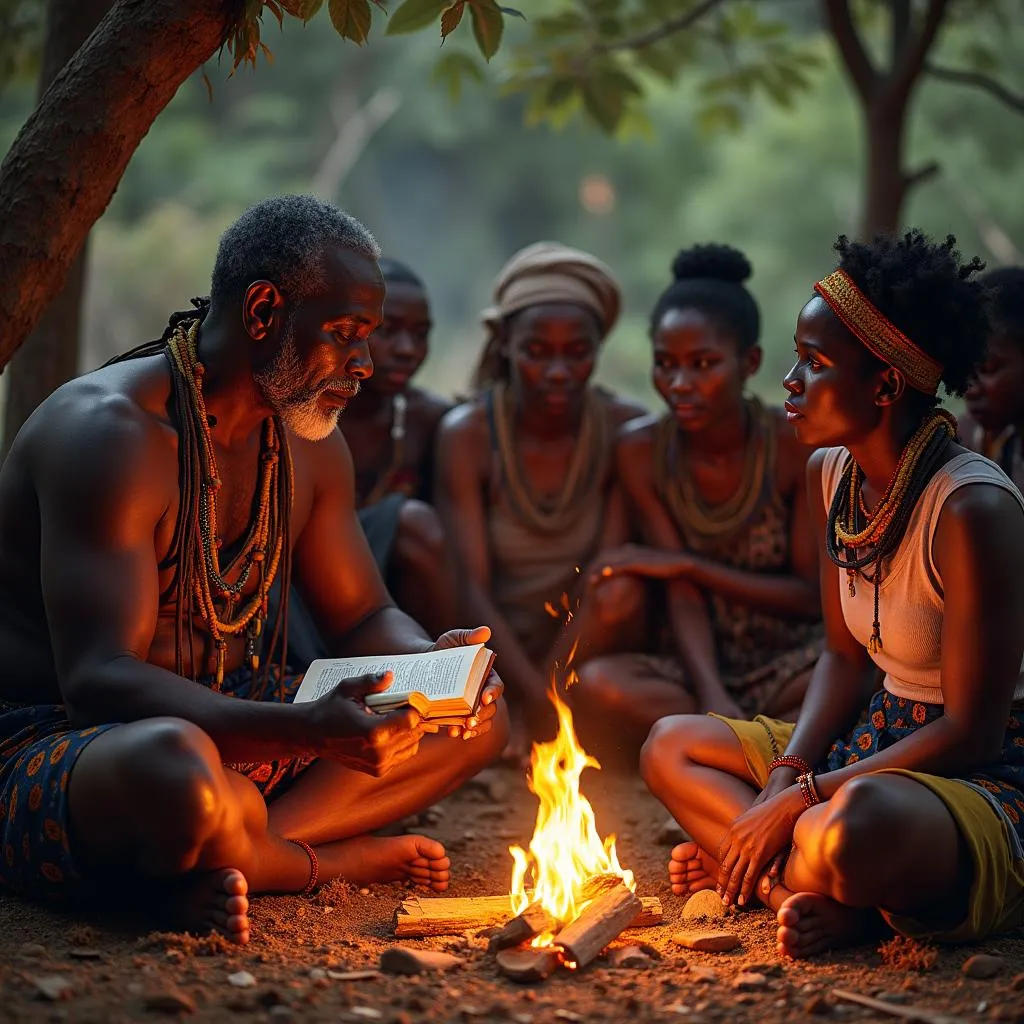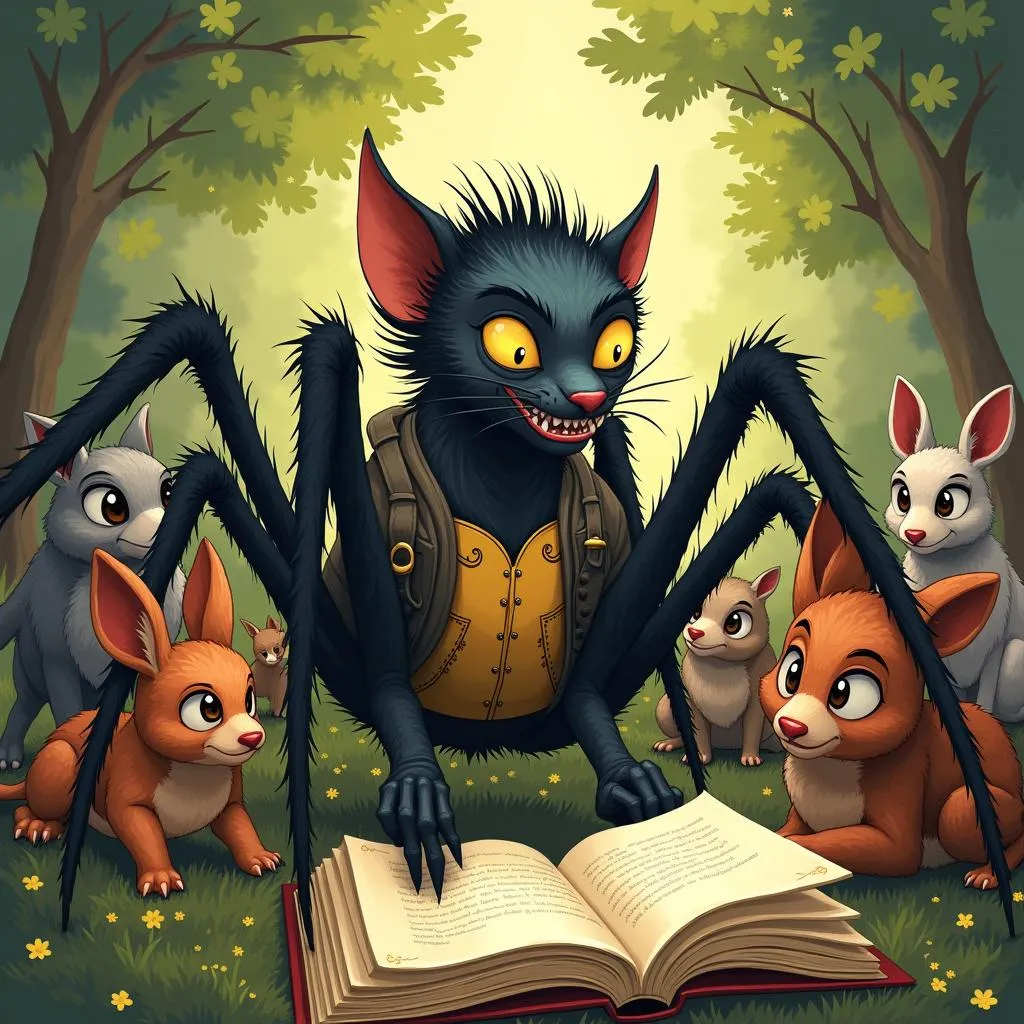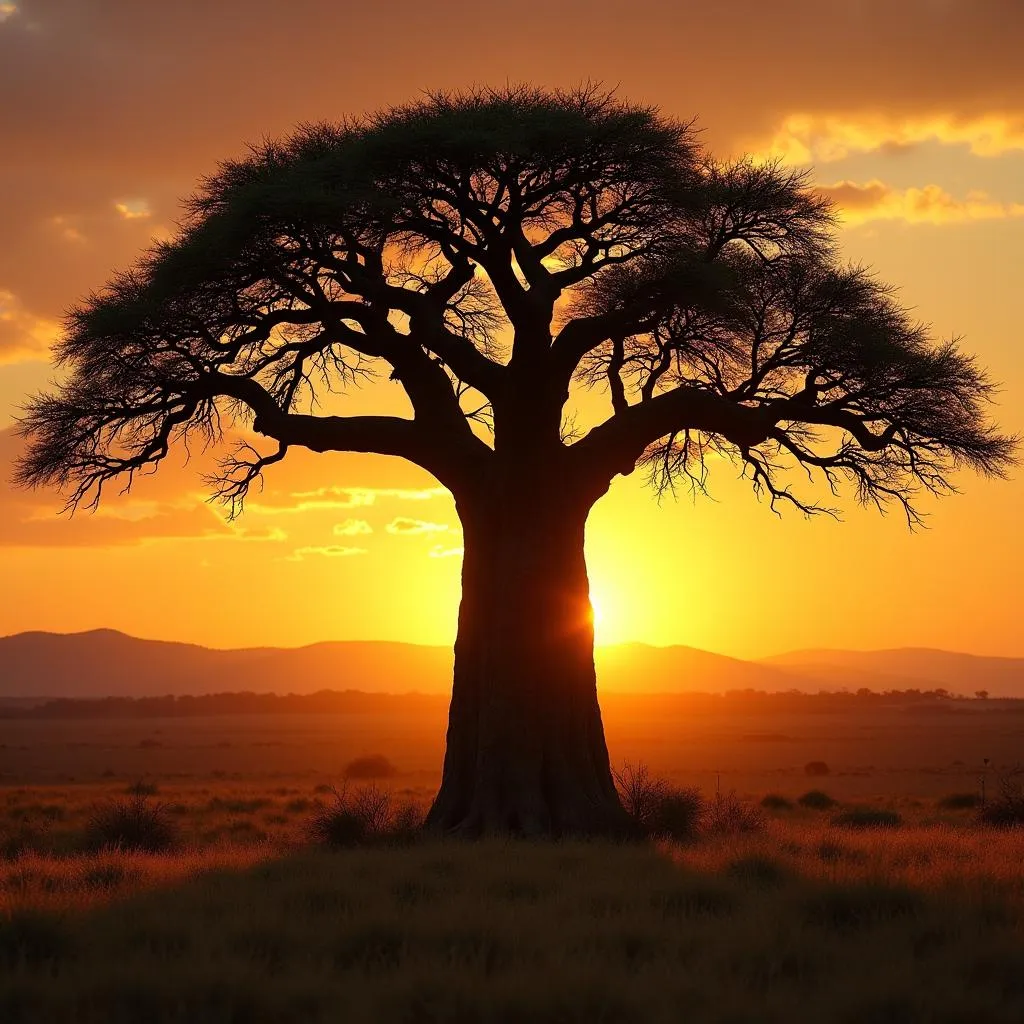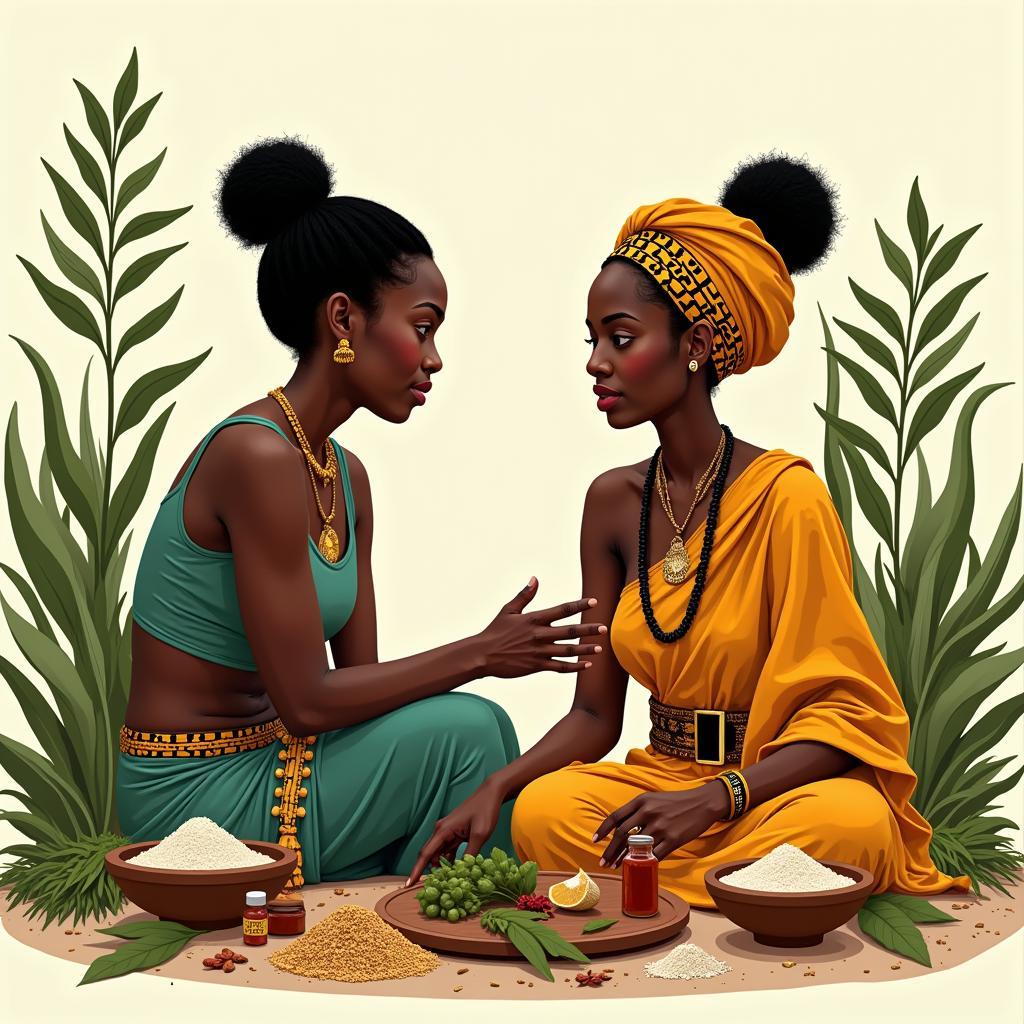African Fables That Teach About God
African fables, passed down through generations, offer a unique lens through which to understand the continent’s rich spiritual tapestry. While not explicitly religious texts, these tales often weave in profound messages about the divine, morality, and humanity’s relationship with a higher power. These stories, often told with a blend of wisdom, humor, and a touch of the supernatural, provide valuable insights into how various African cultures perceive the divine.
 African Storytelling Tradition
African Storytelling Tradition
The Power of Storytelling in African Spirituality
In many African cultures, the act of storytelling itself is considered sacred. It’s not just entertainment; it’s a way to transmit knowledge, values, and beliefs from one generation to the next. These stories, often featuring animals as central characters, serve as allegories, teaching about good and evil, the consequences of actions, and the importance of respecting the natural world and spiritual forces.
Anansi the Spider: Trickster Tales with a Moral Compass
One of the most well-known characters in African folklore is Anansi, the spider. Found in West African traditions, Anansi is a classic trickster figure, often using his cunning to outsmart larger, more powerful animals. While his actions might sometimes seem mischievous, they often carry a moral lesson.
 Anansi the Spider Teaching a Lesson
Anansi the Spider Teaching a Lesson
For example, in one tale, Anansi tries to hoard all the wisdom of the world. His plan backfires, demonstrating that true wisdom is meant to be shared. Such stories subtly convey the importance of humility, generosity, and living in harmony with others, values often intertwined with spiritual beliefs.
Yoruba Myths: Exploring the Origins of the Divine
The Yoruba people of Nigeria have a rich oral tradition filled with tales of Orishas, powerful deities who act as intermediaries between humans and the supreme God, Olodumare. These myths often explain natural phenomena, social customs, or offer insights into the nature of good and evil.
One such story tells of Obatala, the Orisha of creation. Tasked by Olodumare to create the world, Obatala’s journey is fraught with challenges, highlighting the complexities of creation and the delicate balance of life. Such narratives not only entertain but also provide a framework for understanding the Yoruba worldview and their relationship with the divine.
African Fables and the Concept of God
It’s important to note that the concept of “God” in African fables is often nuanced and diverse, reflecting the vast array of beliefs across the continent. Some tales feature a single, all-powerful creator deity, while others depict a pantheon of gods and goddesses with specific roles and domains.
 African Fables Depicting the Divine
African Fables Depicting the Divine
Moreover, many African cultures emphasize the interconnectedness of all things, blurring the lines between the spiritual and physical realms. Ancestors, spirits, and natural forces often play significant roles in these stories, reflecting a holistic view of the world where the divine is intricately woven into the fabric of everyday life.
Conclusion
African Fables That Teach About God offer a fascinating glimpse into the diverse spiritual beliefs and moral values of the continent. Through captivating narratives, these stories convey profound messages about the nature of good and evil, the importance of community, and the enduring power of faith. By exploring these tales, we gain a deeper appreciation for the richness and complexity of African cultures and their unique perspectives on the divine.




